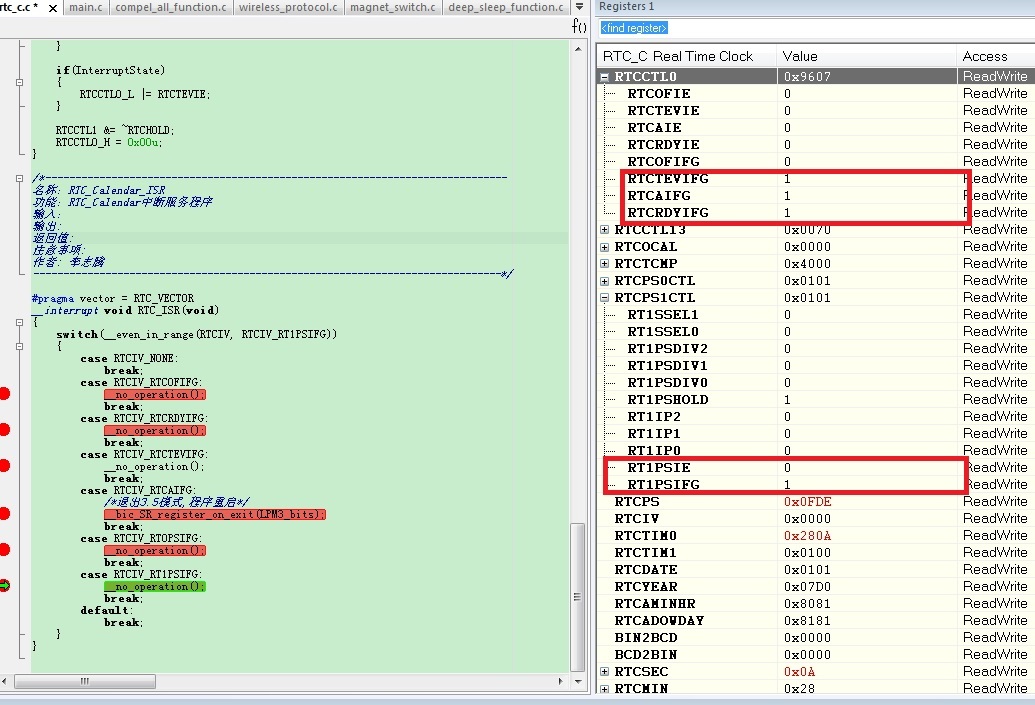Tool/software: TI-RTOS
Good day,
I have a trouble to use RTCAIE interrupt wake LPM3.5 . Before Entering LPM3.5, I set a 1min alarm of RTC and the value of RTCCTL0L is 0x20. When the 1min alarm arrived and RTC waked the cpu, I find the RTCCTL0L = 0x07. Then the program always enters the ISR of RTC , but it didn't execute any case . The program run abnormality.the ISR program as following:
#pragma vector = RTC_VECTOR
__interrupt void RTC_ISR(void)
{
switch(__even_in_range(RTCIV, RTCIV_RT1PSIFG))
{
case RTCIV_NONE:
break;
case RTCIV_RTCOFIFG:
break;
case RTCIV_RTCRDYIFG:
break;
case RTCIV_RTCTEVIFG:
_EINT();
RtcCount++;
if(RtcCount == 1)
{
RtcCount = 0;
g_WakeRegister |= WAKE_RTC_TIME_ARRIVE;
__bic_SR_register_on_exit(LPM3_bits);
}
break;
case RTCIV_RTCAIFG:
/*退出3.5模式,程序重启*/
__bic_SR_register_on_exit(LPM3_bits);
break;
case RTCIV_RT0PSIFG:
break;
case RTCIV_RT1PSIFG:
break;
default:
break;
}
}
I hope you can help me .
Best Regards
Jent


